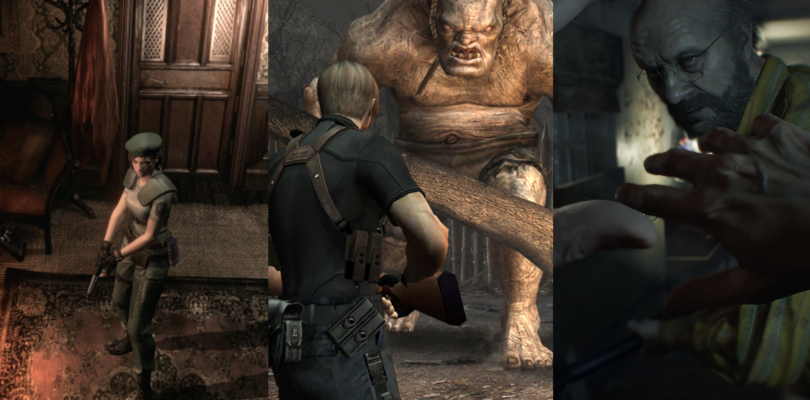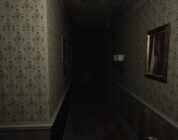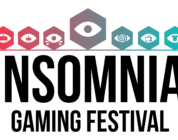
Contents
Background
It’s an understatement to say that the identity of Resident Evils gameplay is fluid at best. The first three iterations, whilst progressively getting bigger in scope and more action oriented, stayed true to the original vision of fixed camera angles and item management being sources of dread, leading to tense decision making and nervous exploration when you couldn’t see what was around a corner.
The fourth entry was a critical and commercial success, changing up the gameplay to more a action oriented approach that the third game had dipped its toes into, with less of a focus on item conservation, even revamping the inventory system and feeling like an altogether different title in some ways.
Ask a resident evil fan today if resident evil four was good or bad for the series, and you can almost use a coin flip to help you predict if the answer is positive or negative. Games five and six squeezed every last drop of action packed gameplay out of the new style it could, sacrificing the horror aspects along the way, which to older fans was a huge misstep in the series, with resident evil six receiving less than favourable reviews on release for failing to innovate.
Then along came resident evil 7, again completely revamping the formula. The emphasis was back on horror, but now instead of item conservation and lack of awareness being the key sources of anxiety, you had a first person view along with a less developed character making for an easier self insert, making you feel like you’re at the mercy of the Baker family, not Ethan.
The decision to once again revamp the formula was met with huge critical success from reviewers and fans alike. Fans adored the return to horror and tension over action, and with games like outlast and PT rattling the cage. A resurgence in genuine horror games for fans and newcomers alike meant it was the perfect environment to take a risk, emulate those horror styles, and move the series forward. Capcom clearly feels confident with the new characters and gameplay, as resident evil 8 is following its predecessor closely in style.

The core of Resident Evil
So with all these fundamental changes to the gameplay, along with numerous different characters and storylines over the years, what ties all the games together? Outside of anything specific like certain characters or events, I’d say a core resident evil game will always require these fundamental elements:
- Battling monsters with guns
- Herbs
- A limited space inventory system
- Viruses
- Shady Organizations behind the scenes
Every core resident evil game has shared these features, regardless of the overall feel of the gameplay. I personally had my doubts going into resident evil 7, but the second I combined those herbs it just clicked.
Of course, this isn’t an exhaustive list. And I’m sure to many of you, some games may have something that feels uniquely RE that some other games in the series lack, making them feel like knockoffs. The lack of enemy variety was a real sour point for me in RE7, and that design decision feels distinctly against what RE is to me.

Divided or diverse fanbase?
When the fourth resident evil game released, the fanbase underwent a significant shift. Fans who loved the older gameplay of fixed camera angles and more invested inventory management could either enjoy the change and move forward with the series, or dismiss it as ‘not truly resident evil’ and no longer support the series.
For every fan that was lost in that decision, a new one was gained from people who may not have cared for the original style, but saw the great reviews and fresh gameplay of resident evil four and joined this new era of the community.
This of course happened again when resident evil 7 released, losing some older fans of the series but gaining new ones. Few game series can boast even one dramatic gameplay shift, let alone two, and still retain a good portion of its original fans.
what has resulted is a fan base in constant turmoil with itself. Go and look at any general resident evil discussion group and there will no doubt be arguments about how 4/7 ruined the series vs saved it from becoming repetitive and breathing new life into the franchise.
The community of course is right, on both sides. It’s personal preference from person to person, and ultimately I think the persistence of plotlines is in part what keeps the different factions civil and in shared joy of this series.
Leon Kennedy is a far cry from his nervous rookie first day when he is shown to be a deeply experienced government agent in resident evil 6. Regardless of what’s said about the gameplay, few fans will disagree that having so many iconic characters from the series interact together in 6’s narrative was just awesome, with obvious exceptions such as Claire and Jill.
I believe it’s this continued narrative and fan service, that not only maintains characters but actively continues their stories and shows them growing as people, that has given the series such longevity with its fanbase. Many people were incredibly excited to see Chris taking a central role in Resident Evil 8’s narrative, with speculation about his intentions and motives flowing freely online.
For many, fans have grown up alongside these characters, and they want to continue their stories regardless of how the gameplay identity may change.

Change: is it necessary?
Ultimately, I believe that the series radical transformation was not only necessary, but inevitable. Fear is a very different emotion to anger or happiness. It requires mystery and the unfamiliar to draw out correctly, which is why no form of horror entertainment can survive without constantly shifting and redefining itself. Think of how many countless cheap sequels there are to classic horror movies, and how almost all fans of those series will tell you the sequels are hot garbage.
Resident Evil 3 was met with signifcantly less applause than resident evil 2, and so the gameplay style had come to the end of it’s life cycle. Fans knew what to expect, and with predictability comes boredom. No one has ever felt scared when their bored.
Resident Evil 6 had the same issue, but also fans had simply had enough of action. The line was drooping in 5 but it hit the bottom for many in 6, with many not even considering it a horror game in any conceivable way. So again, the formula had reached the end of it’s life cycle and a new start was needed.
I’d like to point out these changes were not driven by creative realisations. Capcom used winning formulas as long as they could each time before the profits suffered, and nothing incites innovation like losing revenue. The change of Resident Evil will never be halted by a small group of dedicated fans, not when appealing to the wider audience with new ideas will see a greater return on investments.
The changing gameplay of Resident Evil is destined to annoy a good chunk of fans, time and time again. They like what they like, and that’s perfectly fine. But games have to bring something new to the table to survive each new generation, and never is this truer more than in the horror genre.
I believe Resident Evils evolution is ultimately a great thing. Public wants and demands, even from within small groups, can feel like a many mouthed screaming beast constantly contradicting and shouting over itself. So few big developers ever dare to stray away from a known formula in recent years (looking at you Ubisoft) and the Resident Evil series should be applauded for periodically innovating, rather than condemned for daring to give fans something else.
If you enjoyed reading this, consider reading some other content:


